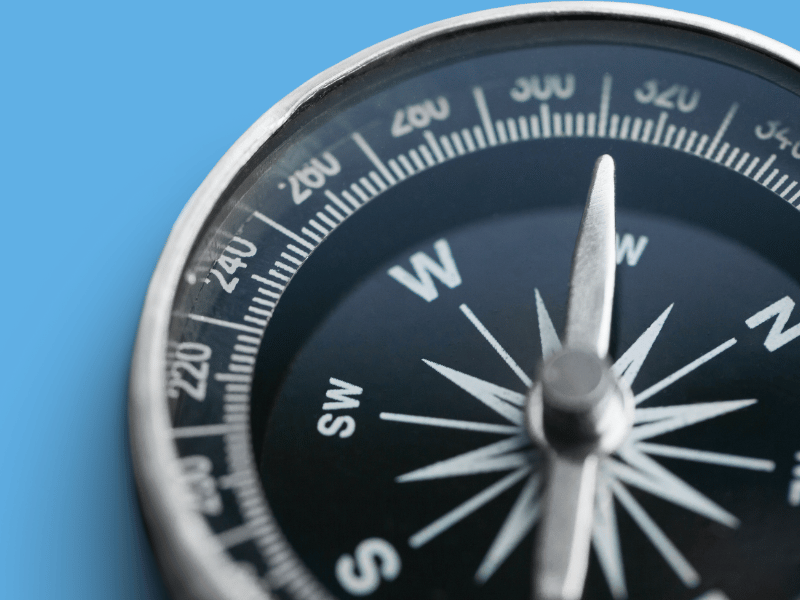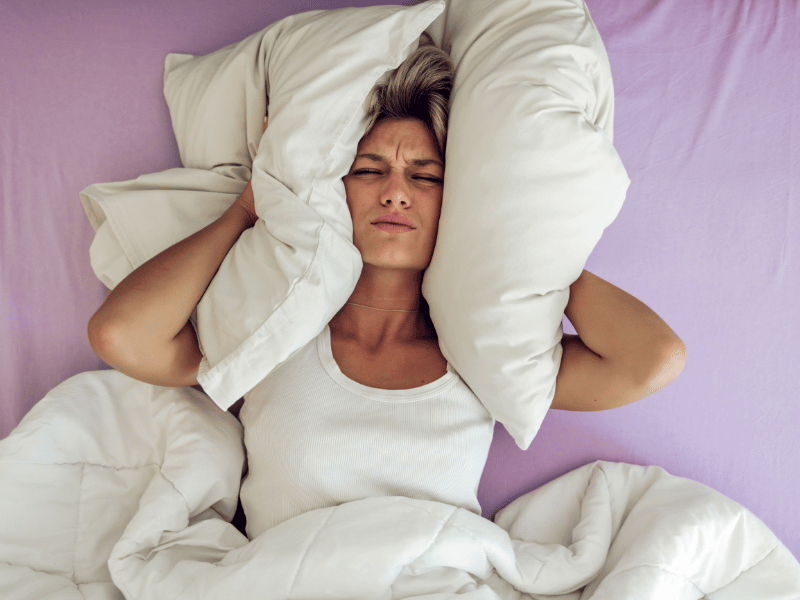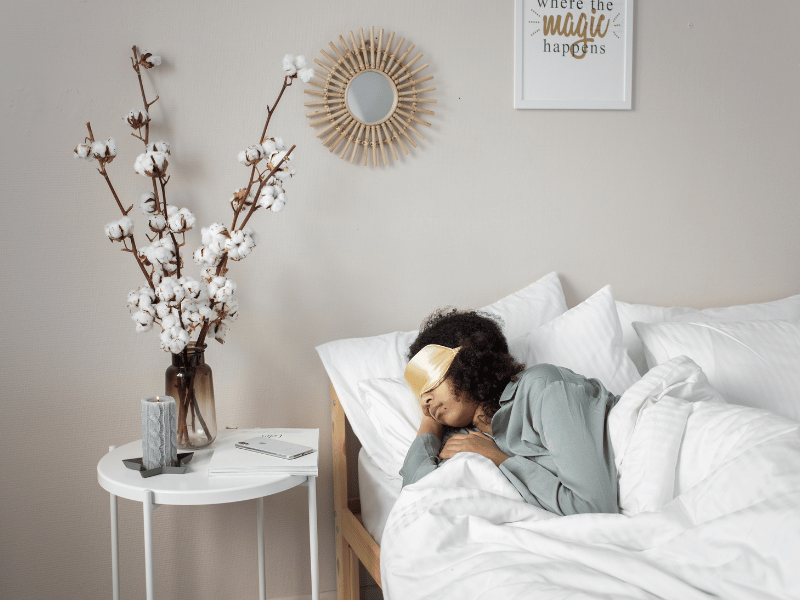


Some may say that sleeping in the north direction is bad. Some may say that it is the opposite. How do you know which is the best direction to sleep in? Scientific research seems to suggest that there might be a suitable direction to sleep in. Find out which direction to sleep scientifically for a good night’s rest below.

It is widely noted in science that humans use the Earth’s magnetic field as sensory cues to align the body and to hunt food [1]. There is currently no scientific evidence that points to the best sleeping direction for sleep. However, some researchers suggest that sleeping toward the south position may result in lower blood pressure, heart rate, and cortisol levels [2].
In addition, the position that you choose to sleep in may also play an important role if you’re suffering from a sleep disorder such as sleep apnea.

Aligning your sleep position according to the magnetic fields has its potential benefits which include:
By choosing to align your head in such a manner, there’s a good chance that you may be able to reduce your sleep problems and get good quality sleep.
The anecdotal evidence and animal behavior suggest a correlation between sleeping direction and restfulness. It’s observed that animals tend to align their bodies in the north-south direction when they are eating or in a state of rest [3]. This is due to a magnetic alignment or “compass” in their brains.
For us humans, aligning our bodies in the same direction as how animals do, could potentially help to improve sleep quality.
You may also consider adjusting your position for sleep according to Vastu Shastra or Feng Shui to potentially enhance your restorative sleep.

Looking at it from a scientific standpoint, there isn’t a direction that is considered unsafe to sleep in. However, in many cultures, the north direction is seen as a bad direction to sleep in as it goes against the earth’s electromagnetic field. Sleeping with your head facing north may potentially disrupt sleep and result in increased restlessness and stress.
Improving your sleep can be influenced by the direction in which you position yourself while sleeping. While the best sleep direction may vary based on cultural beliefs and anecdotal evidence, scientifically, sleeping with your head to the south and feet to the north is considered an optimal position for better sleep.
Here are some benefits of sleeping in a particular direction:
| Sleep Direction | Benefits |
|---|---|
| Head South, Feet North | Enhanced Sleep Quality |
| North-South Position | Potential Disruptions |
| Side Sleeping Positions | Comfort and Support |
| Upside-Down Position | Not Recommended |
Sleeping in the east-west direction can be beneficial for sleep. Sleeping with your head facing eastward is said to improve memory and concentration. Additionally, it is believed to cultivate positive energy and good health so it is often recommended for those seeking peace and clarity.
Considering the previous subtopic’s insights, your understanding of geomagnetic influences on sleep quality can be enhanced by exploring how Earth’s electromagnetic fields may affect sleep. While the impact of geomagnetic influences on sleep remains inconclusive, some theories suggest that aligning your sleep towards specific directions, such as facing south, may lead to better sleep quality.
In the practice of Feng Shui and Vastu Shastra, sleeping direction recommendations are based on energy flow and balance within the environment. The idea that Earth’s magnetic poles influence human bodies, with the positive pole to the north and the negative pole to the south, adds a layer of complexity to the discussion.
To achieve the best sleep, it may be beneficial to consider these geomagnetic influences in conjunction with other factors that contribute to a restful night.

To enhance your sleep duration and quality, ensure your bedroom is conducive to rest by optimizing your environment for comfort and relaxation.
Here are some tips to help you optimize your sleep environment:
Creating a cozy and tranquil sleep environment can significantly impact your sleep quality. Remember, small changes in your sleep hygiene and surroundings can lead to improved sleep quality and overall well-being.
Ultimately, finding the right direction to sleep in would depend on your personal preference and comfort. There is no ‘best direction’ to sleep in according to science, however, you may find it beneficial for your health to sleep facing southward.
Aside from sleeping direction, you may also want to consider improving your sleep hygiene for better sleep. One way to do so is by using ShutEye® app. ShutEye helps users to optimize their sleep quality by tracking sleep patterns and offering personalized sleep solutions. Try it today!
Chae, K., Kim, S., Kwon, H., & Kim, Y. (2022) Human magnetic sense is mediated by a light and magnetic field resonance-dependent mechanism. Scientific Reports, 12(1), 1-11 [online]. Available at: https://doi.org/10.1038/s41598-022-12460-6
Hekmatmanesh, A., Banaei, M., Haghighi, K.S., Najafi, A., (2019) Bedroom Design Orientation and Sleep Electroencephalography Signals. Acta Medica International 6(1):p 33-37 [online]. Available at: 10.4103/ami.ami_60_18